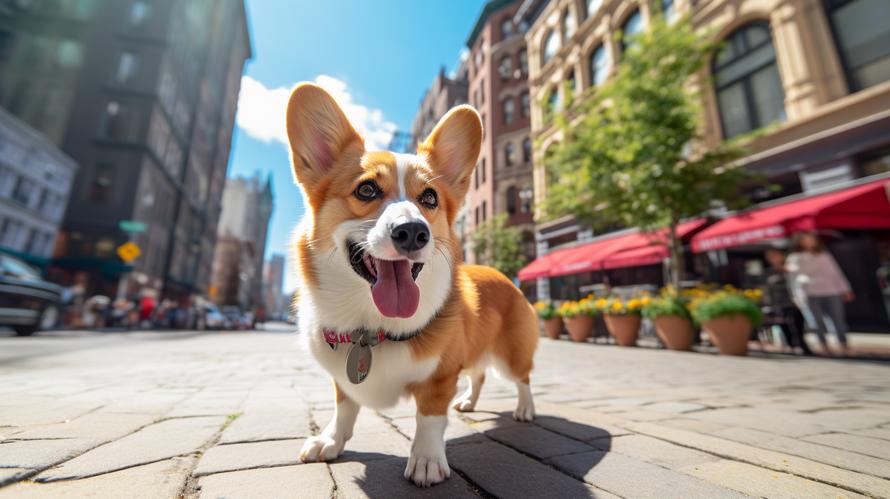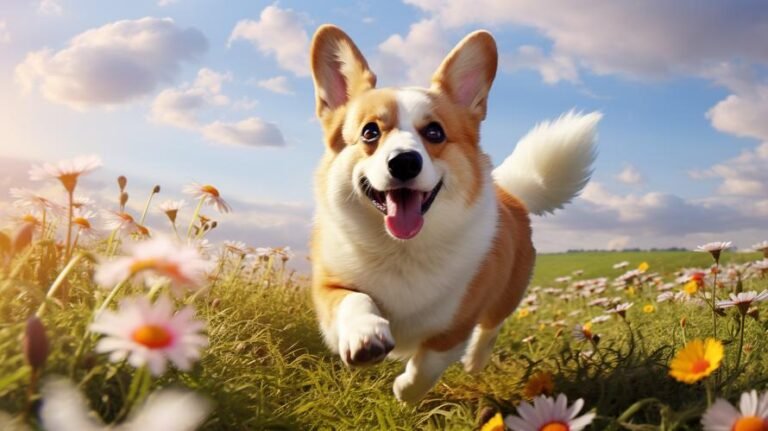Every dog owner wants a pet that’s easy to train. A pet that not only understands basic commands but also easily adapts to its environment. And anyone who knows a bit about dog breeds can tell you that the Pembroke Welsh Corgi is one aptly named ‘The Thinking Dog’. So, we have them famous for their intelligence, but the question is: are they easy to train?
Let’s begin with an idiosyncratic piece of trivia that most people don’t know, even some Corgi owners. Pembroke Welsh Corgis are ranked as the 11th smartest dog breed out of 138 qualifying breeds, according to world-renowned canine psychologist Dr. Stanley Coren. Now that’s a staggering fact!
But intelligence doesn’t mean trainability. Think about it this way: A Rhodes Scholar might be smarter than their professor, but that doesn’t imply the professor can make them grasp Quantum Physics over a cup of coffee, right? Thus, our aim today is to detangle this complex, furry issue by exploring the unique world of Pembroke Welsh Corgis.
When it comes to training a Pembroke Welsh Corgi, there are a few primary arenas to keep in mind: obedience, positive reinforcement, their breed-specific traits, and lastly, your role as the owner.
Obedience training is an essential aspect of training for any breed, carrying the purpose of imparting basic commands like sit, stay, or heel. For a Pembroke Welsh Corgi, this might seem like a walk in the park. They’re indeed quick learners with their intelligence reflecting in the speed at which they grasp new commands. Moreover, they’re eager to please their owners, making them more inclined to learn and perform.
Secondly, Pembroke Welsh Corgis respond very well to positive reinforcement. Reward them when they do something good. It could be a treat, a pat, and praises like “good boy” or “well done.” Such reinforcement encourages them and makes the learning experience fun and effective.
Understanding the breed-specific traits of Pembroke Welsh Corgis can considerably enhance their trainability. Originating from Wales, where they were highly employed for herding tasks, Pembroke Welsh Corgis are workaholics by nature, loving challenges and enjoying a hearty amount of physical and mental exercise. To tap into this genetic predisposition, incorporate games or tasks that require them to ‘work’ within their training program.
Lastly, but arguably the most significant factor for the success of the training is your role as an owner. You have to be consistent, patient, and establish yourself as the pack leader. As herding dogs, Corgis may display a bit of stubbornness, perhaps trying to corral you around. But with firm and clear communication, establishing boundaries, consistently rewarding good behavior, and promptly correcting errors, you can ensure effective training sessions and a mutually respectful relationship.
While the Pembroke Welsh Corgi’s breed attributes make them relatively easier to train compared to some other breeds, some potential challenges could surface given their intelligence and temperament. They are extremely curious and can often be quite independent, posing a possible challenge when trying to hold their attention during training sessions. Their intelligence can also make them a little manipulative if the training is not consistent and firm. The key lies in maintaining a balance – nurturing their intelligence while channeling it towards positive behavior through disciplined training.
In conclusion, are Pembroke Welsh Corgis easy to train? Well, the answer is a resounding yes, with a pinch of patience and perseverance on your part. Pembroke Welsh Corgis are undoubtedly intelligent, eager to please, and adaptable creatures. But like any other individual, they too have their quirks and require a tailored and consistent approach to training that caters to their unique breed characteristics.
So, if you plan on welcoming a Pembroke Welsh Corgi into your home, or are already a proud Corgi parent looking to start or amplify your training efforts, remember this: Patience, consistency, and knowledge of your dog’s breed-specific traits and dispositions can make your training journey a rewarding experience for both you and your furry companion. Happy Training!



